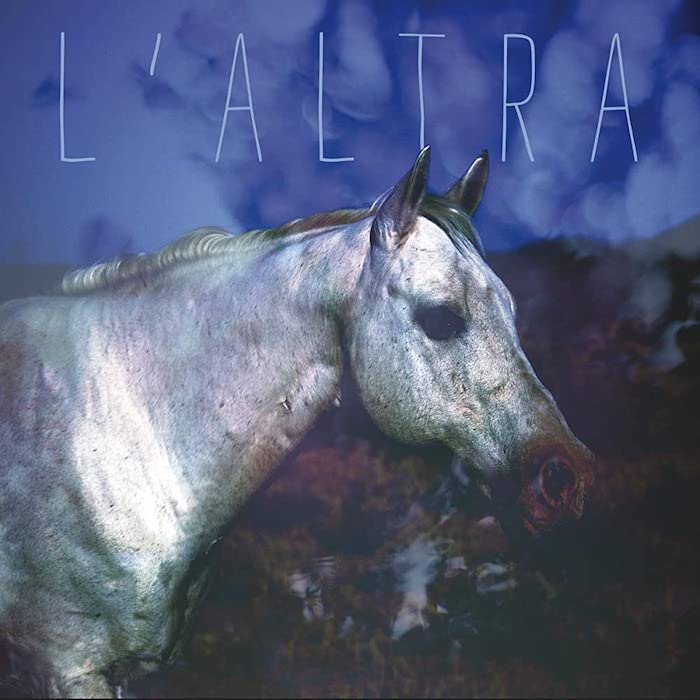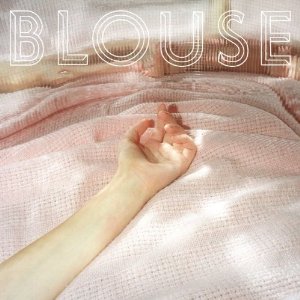
REVIEW: L’ALTRA – TELEPATHIC (2011)
It was up until recent when I started to become curious about what this whole Nouvelle Vaguemovement was in film. I would not say I’m a film buff, but after undergrad I unexpectedly had too much free time and started to watch classics left and right. Up until recently, the 1950s and 1960s movement was much ignored. After I started to dip in, I found myself plunged into art cinema. The last, but most rather shocking film coming out of the tail end of both Nouvelle Vague directors, comes from Jean-Luc Godard, entitled Weekend. If you want a challenge, watch it.
When the still screenshot taken from Le Mépris (Contempt) landed before me, I was instantly intrigued at who would be behind using Jean-Luc Godard for a music video. The scenes were taken from the filming of the Odyssey, spliced and put to a countrified guitar, bent back like warped wood over soft male-female dual vocals. As drums entered, the sound opened up refreshingly. It built up, then dropped like a stone back to the vocals. You do that, you hook me. When the solder pulls back the arrow, and vocals start climbing, my attention was definitely grabbed and sustained. Inserting a little bit of a sax towards the end, instead of a string section, really distinguishes the lead single of Chicago/Brooklyn’s L’Altra from the rest of the indie chamber pop musicians.
To call Telepathic a follow up to Different Days is hard to believe, as the latter came out in six years prior in 2005. After time away from one another, and respective solo projects, Joseph Desler Costa and Lindsay Anderson began comparing musical pieces with one another, discovering how well their respective pieces fit. Thus, together once again, L’Altra brings us a snug, concise yet lavish album that, unconsciously, flows so well from end to end it seems time is swept away into the waves of Jean-Luc Godard’s Italian coast. What’s different? Well, compare the above “Nothing Can Tear It Apart” with “Bring on Happiness” off Different Days (below), and it starts to become apparent.
Intentionally, the album has two bookends entitled “Dark Corners I” and “Dark Corners II” full of a dirge of saxes. It’s not quiet the expected beginning to an album that wanders between dream and chamber pop, but it works rather masterfully in achieving definitive borders. “Nothing Can Tear It Apart” takes that drudge, and suddenly adds light, which continues into “Big Air Kiss.” The tempo shifts into a higher gear with Joseph’s voice followed closely behind by an accompanying piano. Elements of country sneak in, a welcome edition with as it drifts and matches his more poignant delivery. Lindsay Anderson follows as well, but offering those subtle hints reminiscent of how Adrianne Verhoeven would accentuate Josh Berwanger’s singing in The Anniversary. The closer you listen, the more you notice smaller musical additions, as with the violin as “your eyes are the brightest circles” rolls gently past you.
Lindsay follows the down tempo “Boys” with “When The Ship Sinks” with a simple piano unraveling into an elegant melody that replaces her vocals when she rests. Charles Rumback’s drumming is precise, nearly akin to a drum machine, which allows the incoming dual male-female vocals to harmonize upon that foundation without becoming overwhelmed by cymbals. The darkness in Different Days remains, you could argue, but is imbued in an orchestration that keeps the weight in equilibrium, especially on “Black Wind.” Don’t want to focus on one thing? The sax, hidden extraordinarily well in the recording, can tempt the ears with its jazz-like improvisation.
Telepathic is a very subconscious album. It easily lulls you into forgetting that track after track has passed. “Either Was The Other’s Mine” coaxes you into relaxation, comfort you could say, before the isolated drums give in to “Winter Loves Summer Sun.” Much akin to “Nothing Can Tear It Apart,” you don’t quiet understand that the songs don’t have distinct ends or beginnings, more so transitions, until a bending Arp synthesizer swerves into the call-and-response vocals between Joseph and Lindsay. These moments of the album serve as distinct peaks to what you could call the album’s general plot. “This Bruise” could very well be the resolution, where characters come to terms or reconcile.
L’Altra has, you could say, directed an overarching album that can be dismissed easily, but can thoroughly reward the patient listener. Cleverly placed strings and faint saxes can be heard at various points that, taken in with the pairing of Joseph and Lindsay’s vocals that build tremendously off one another (particularly “Telepathic”), is rightfully reflective on any of the art cinema films their first single borrowed from. Give this a listen, even fleeting, but resolve to return to it. You won’t be left dissatisfied. It’s a welcome return.
Rating: 7.9/10
Founder, Editor, Writer, Photographer. (Austin, Texas)



Post a comment